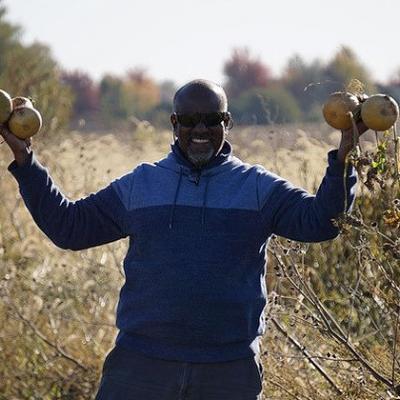Ayman Sharif was looking for a unique educational opportunity when he left the Middle East in 2013, and he found just that in Iowa City—the home of the University of Iowa.

“I wanted to get a master’s degree quicker. Also, the Urban and Regional Planning Program is really good,” Sharif says. “You get more in-depth knowledge and experience regarding planning issues. This is more recognizable in the job market. You have a better shot at getting a great job if you have a master’s degree.”
Sharif, originally from Sudan, grew up in the big business country of the United Arab Emirates, where its wealthy environment wasn’t conducive to educational opportunity.
“If the wealth is already in my hand, there’s no need to go to school at all,” Sharif says.
Iowa City, conversely, is a quieter place where great value is placed on education.
“The whole system is designed to encourage education at different levels,” Sharif says. “Here, I am working, a family person, and have multiple responsibilities, yet I have a chance to graduate.”
Using land use management to promote diversity
Sharif’s graduate studies specializes in land use and environmental planning. He puts his studies into practice, serving as executive director of the nonprofit Global Food Project.
Established in 2017, the Global Food Project is a community farming project on 3.7 acres at the Johnson County Poor Farm. Garden plots are made available for interested gardeners of all nationalities. Currently, there are people from such places as Honduras, Egypt, Guatemala, Morocco, and Iowa.
This diverse collection of people plant, grow, and eat food — together.
“The Global Food Project confirms ideas that I was questioning and trying to examine in my life,” Sharif says. “I believe in diversity as a powerful source. I believe in communication between people. I believe in cooperative working. I believe in hard work.”
The food grown by the gardeners feeds people at community events, celebrations, and fundraisers put on by the Global Food Project.
While feeding people is extremely important, Sharif is quick to point out that the project is also about connecting people and promoting diversity.
“Societies and communities are dynamic. In Iowa City, we have people from different cultural backgrounds,” Sharif says. “The vehicle to capture this positive diversity is establishing programs for getting people together to occupy the same space and time.”
Sharif believes cooperating on simple food-related tasks brings change.
“This creates confidence, trust, respect, and acceptance among people,” Sharif says. “Every day, we have more things to share and talk about. My simple idea is when people in their natural environments stay together longer, they communicate and connect with each other.”